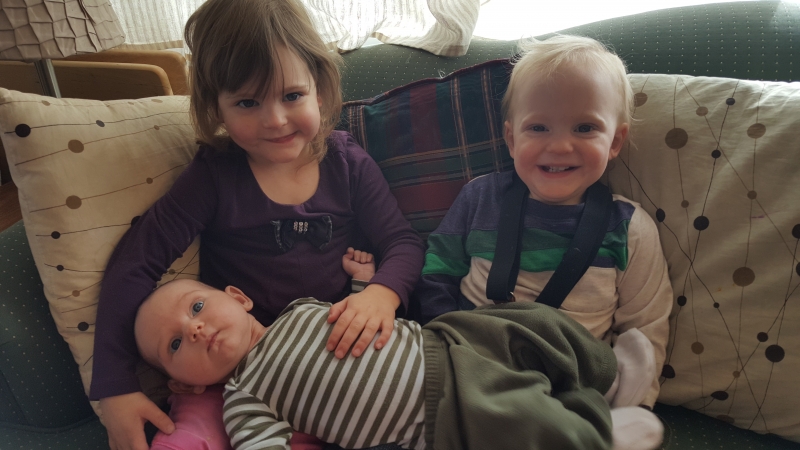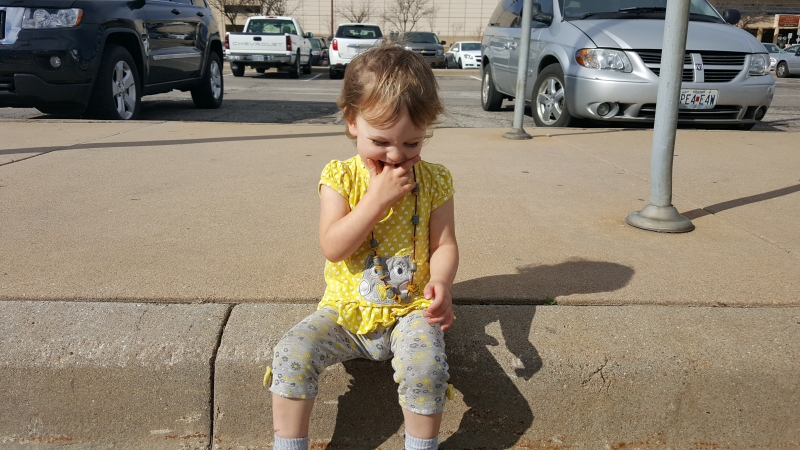Elizabeth Stone (whoever she is) once said that “making the decision to have a child… is to decide forever to have your heart go walking outside your body.”
Most of the time, when I read this quote on a pretty background while scrolling through Pinterest, I roll my eyes. That is everything that is wrong with parenting these days, I think. Parents are just too absorbed in their children.
And then my baby gets her first cold.

I remember it with Tirzah Mae, a few weeks after she came home from the hospital. She was snuffling and gasping and we’d been trained into terror of RSV by the NICU staff.
We took her to our doctor, who smiled indulgently at these first time parents freaking out about a simple cold. He described the warning signs of something worse than just a cold and sent us home (thankfully, he didn’t /doesn’t subscribe to the “give a baby antibiotics just to ease troubled parents’ minds” line of thought.)
Even knowing that Tirzah Mae’s cold was just a cold, I still felt with every labored breath that my heart was rattling outside my chest – and that said heart was just about to break.
Somehow, it doesn’t get easier. Beth-Ellen was a term baby. Her objective risk of serious complications of a cold is lower than the other children’s risk was. I’m a more experienced mom and have weathered dozens of colds.
But when Beth-Ellen got a cold this weekend, at just shy of six weeks old, my heart was out there coughing. And when she lost her voice and could only squeak instead of screaming? My heart, oh my heart, squeezed until it’s crushed. And when she started wheezing with every breath in and out? I was sure she was dying – and that I was dying with her.
And just as I’m about to wake my husband and tell him we need to head to the ER (but am worried because, for some reason, it seems like every time we go to the ER, the problem resolves while we’re there and I look like a fool) – anyway, just as I’m about to wake Daniel and head off to the ER, I remember where my heart actually belongs.
My heart doesn’t belong in my children’s chests. It doesn’t even belong in mine. My heart belongs to God.
“Trust in the Lord with all your heart and do not lean on your own understanding.” (Proverbs 3:5 ESV)
Sure, I’d prayed for Beth-Ellen at our evening devotions, and earlier when she’d come up in my prayer app. But during all this worrying? I hadn’t been entrusting her to the Lord.
I stopped. I confessed my lack of trust. I prayed for healing and for wisdom to know when to have Beth-Ellen seen. I entrusted my daughter to God’s care, entrusted my heart to him.
And the labored wheezing settled, the noisy breathing calmed, the restless sleep eased. My daughter slept in peace.
And I did too, my heart still walking outside my body, but this time walking with the one who holds it – and my daughter – so tenderly.
My heart and my daughter can find rest in God alone.
To paraphrase the Psalmist: Why so troubled, O my heart? Put your trust in God!


